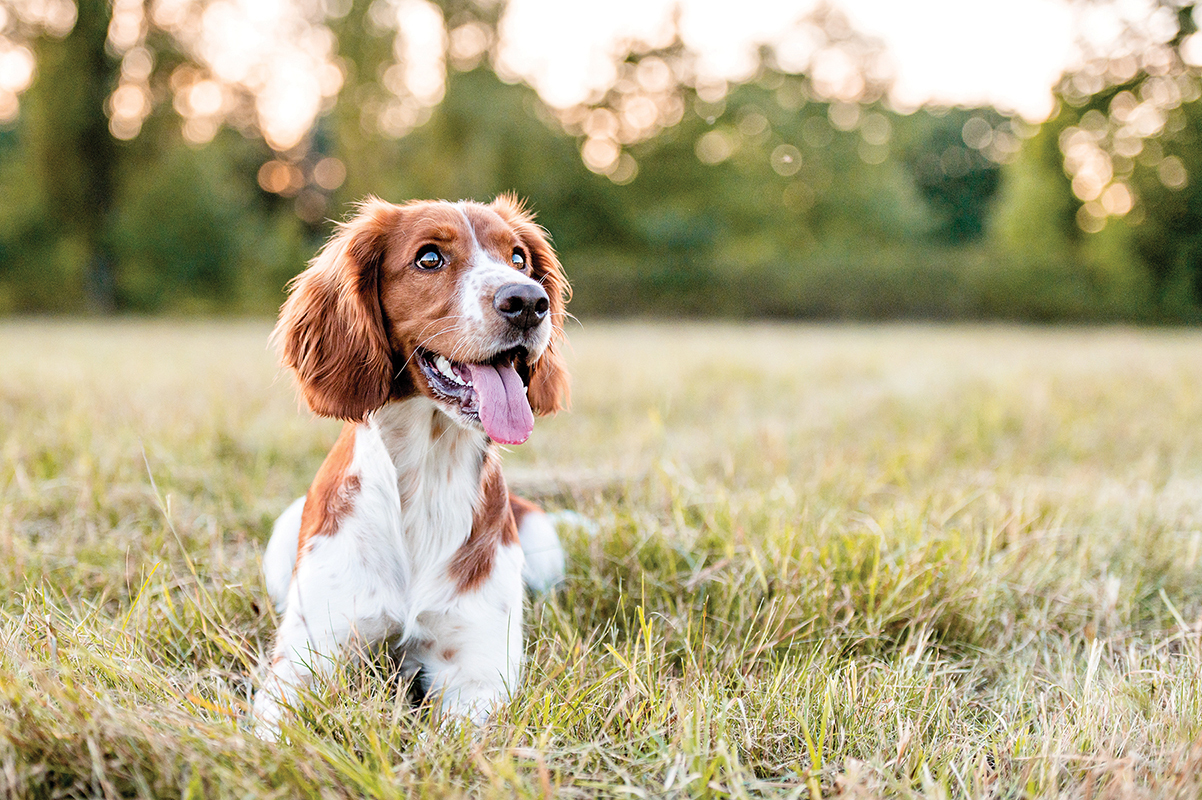CBD For Canines

When are you going back to work? I’d like the house back during the day. Signed, your dog. The past year has been just as confusing for our pups as it’s been for the rest of us. Having the entire family at home has been a big change and has likely disrupted their routines of long naps and chasing their tails.
Anxiety is just as real for dogs as it is for people, and according to the Merck Veterinary Manual, their anxiety can come from a variety of causes. Some of the most common are fear, separation, and aging.
The American Kennel Club (AKC) states that fear-related anxiety can be caused by loud noises, strange people or animals, visual stimuli like hats or umbrellas, and new or strange environments. Specific situations like visiting the vet’s office, going for car rides, and walking on surfaces like grass or wood floors may also be a factor. Although some dogs may only have brief reactions to these kinds of stimuli, anxious dogs may be more affected.
According to the ASPCA, separation anxiety is triggered when dogs become upset because of separation from the people to whom they are attached – perhaps becoming agitated or depressed when their human family members are preparing to leave the home or feeling anxious while their owner is away.
If you’ve lived an active lifestyle, arthritis will more than likely become a factor for you – and your pet as he or she ages. Arthritis is one of the most common ailments affecting middle-aged to senior dogs and cats, and it can be a source of chronic pain, negatively affecting their quality of life. Signs of arthritis can be as obvious as limping, trouble with stairs, or difficulty getting in and out of a car. The more common could be described as “slowing down,” and can easily be dismissed as part of the normal aging process. The reality is that your dog could be limiting his or her activities due to pain.
If you have an anxious pup, of course you want to do all you can to provide relief. This relief may be available thanks to cannabidiol, commonly known as CBD.
If you haven’t heard all the buzz surrounding CBD these days, you may be asking yourself what exactly it is. CBD is one of the 100+ cannabinoids that can be found in the hemp plant. It contains very low THC (the active ingredient in marijuana) at less than 0.3%, so it does not cause a psychoactive effect, making it safe and non-altering.
Animals and people have an endocannabinoid system, ECS, that helps regulate homeostasis or balance. CBD works with CB1 and CB2 receptors throughout the body to help bring calmness, reduce inflammation, and relieve pain.
And while you might be thinking about yourself and how CBD can help you, let’s stick with man’s best friend for now. CBD can be a great natural alternative to anti-anxiety or pain medications for your furry family member. CBD products that help provide soothing support for dogs include treats, oils, chews, and peanut butter. Whichever product you choose for Fido, it’s vital to know that quality and potency matter. Why? Because in an unregulated industry, many products tested for quality and potency come up short, meaning some contain heavy metals, pesticides, or too much THC, which can be toxic for animals.
It should be noted that CBD may have potential side effects for your pup. According to the AKC’s chief veterinary officer Dr. Jerry Klein, be on the lookout for:
– Dry mouth: Research has shown that CBD can decrease the production of saliva. For dogs, this would show as increased thirst.
– Lowered blood pressure: High doses of CBD have been known to cause a temporary drop in blood pressure. Even though the drop is small, it might create a brief feeling of light-headedness.
– Drowsiness: CBD’s calming effect can also cause drowsiness, especially when using higher doses.
A quick story before I finish … several months ago, our English Golden Retriever, Hadley, couldn’t get up off the floor one night, and naturally, we panicked. She’s only four years old, but we were thinking hip dysplasia – or even worse, potentially something neurological was going on. We took her to the vet where she was diagnosed with a strained CCL and was prescribed anti-inflammatories and pain medication. However, we didn’t want to medicate her if at all possible, and decided instead to try CBD oil. After two weeks of taking the oil daily, Hadley was back to her old jolly self, taking care of us. I share this because I know if you’re reading this story, you care about your pets as I do, and want to give them the best life possible. While medication prescribed by a veterinarian is definitely necessary in certain situations, CBD may be a beneficial alternative to treating Fido and Fluffy if they feel anxious or uncomfortable. Should you have any questions about whether or not CBD is a good option, consult your veterinarian prior to giving it to your pet.
Nick Pione
A local business owner, blog writer, and natural wellness expert. He co-founded Trek CBD and contributes to medium.com and trekcbd.com.

